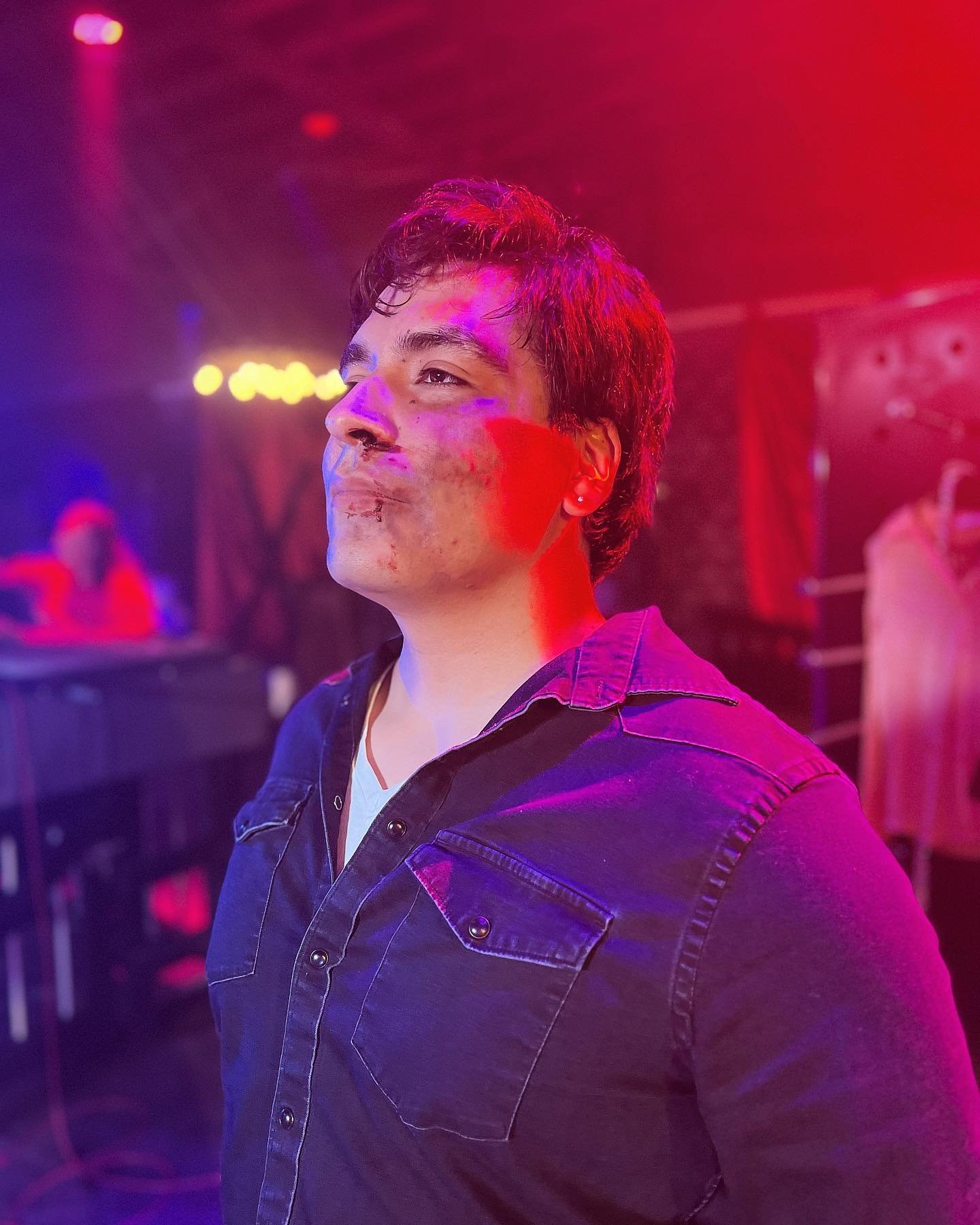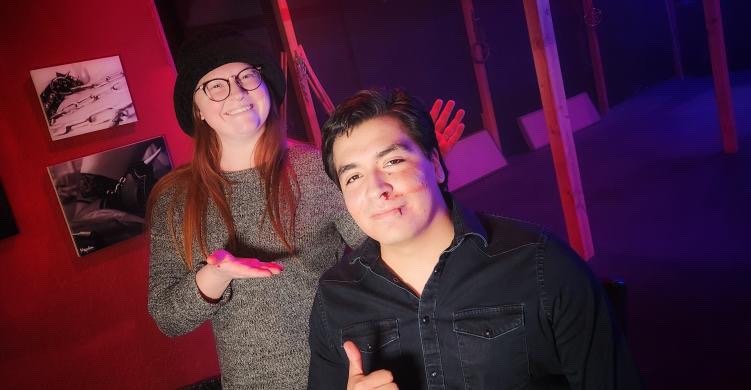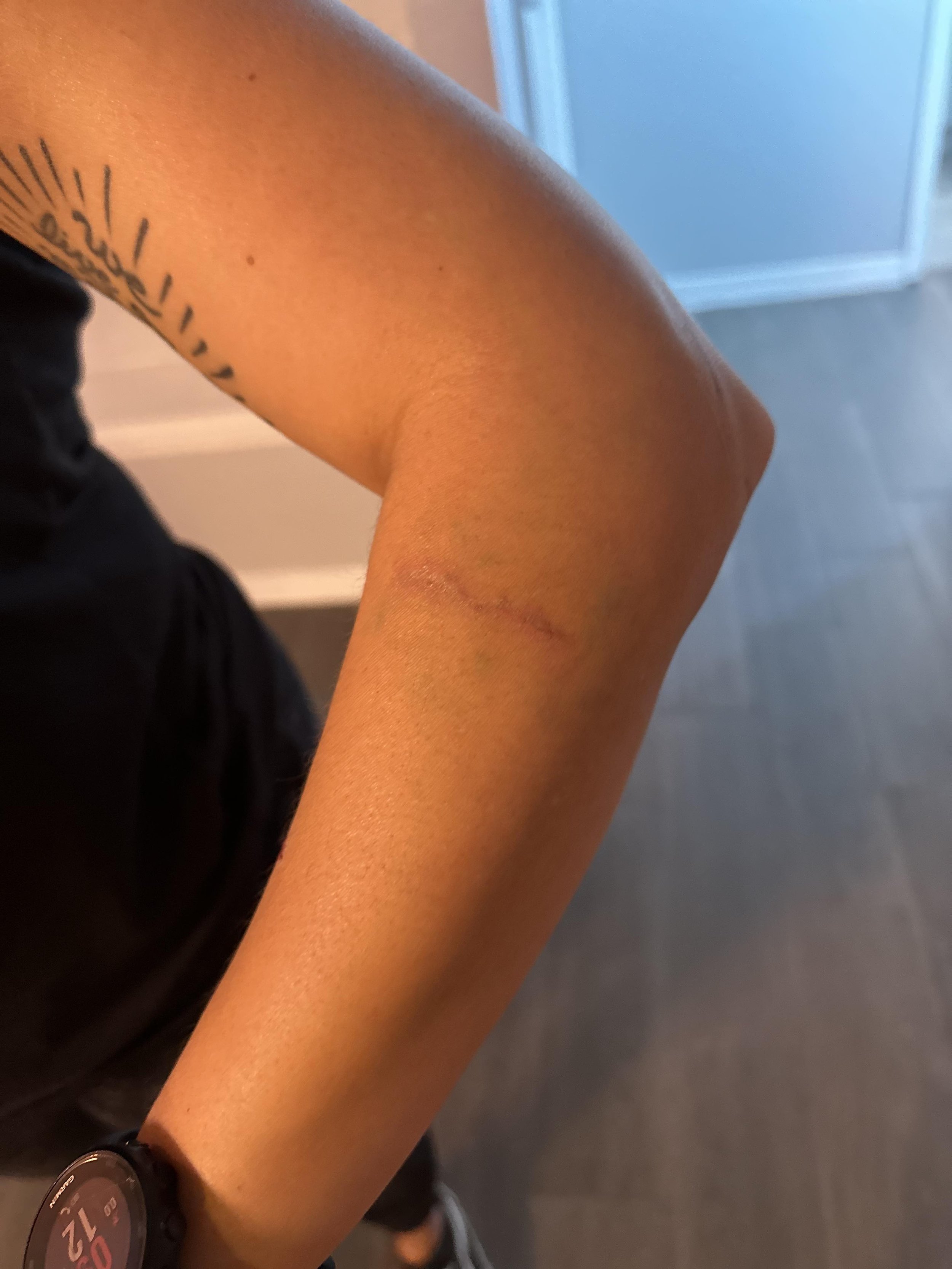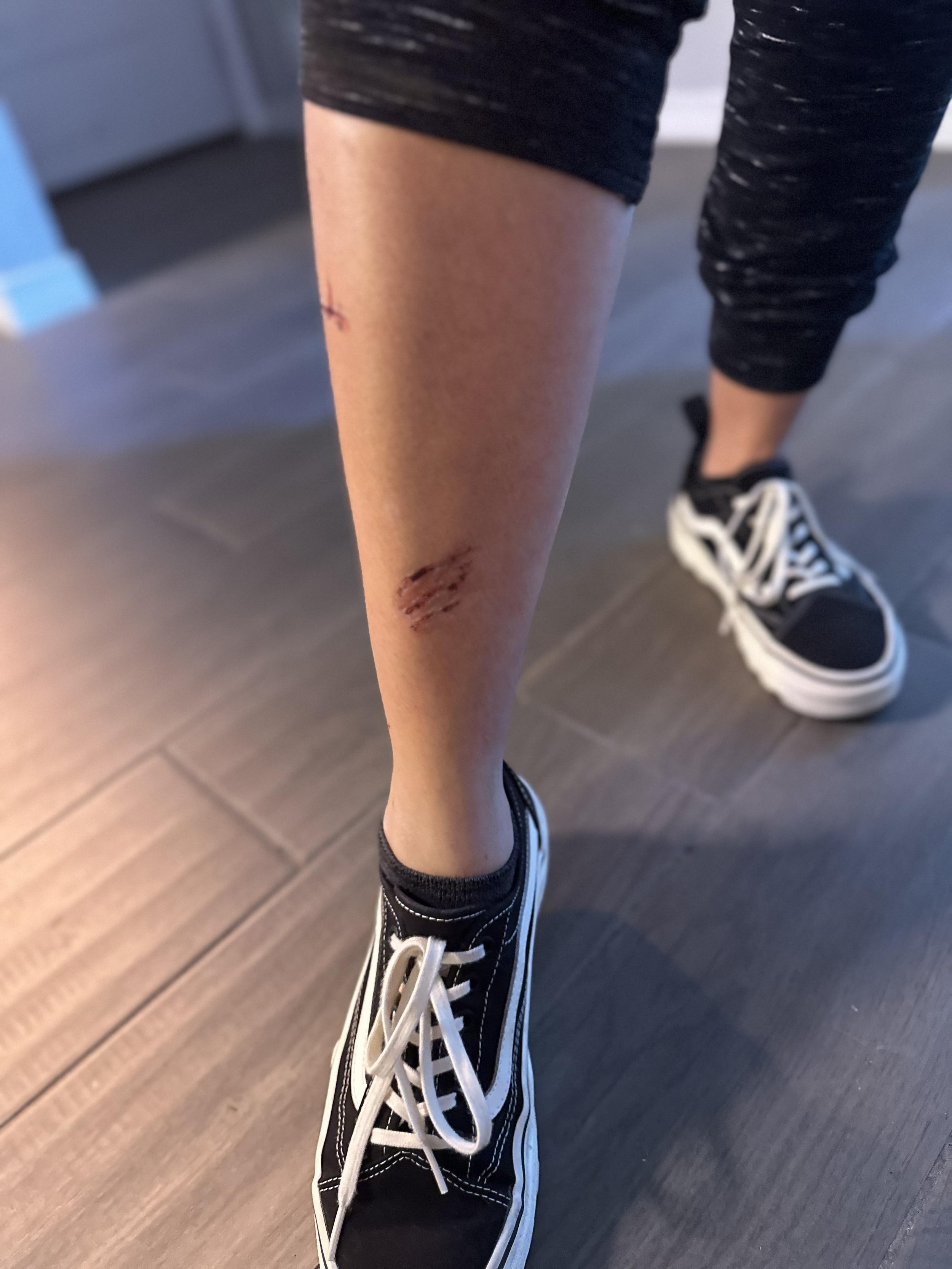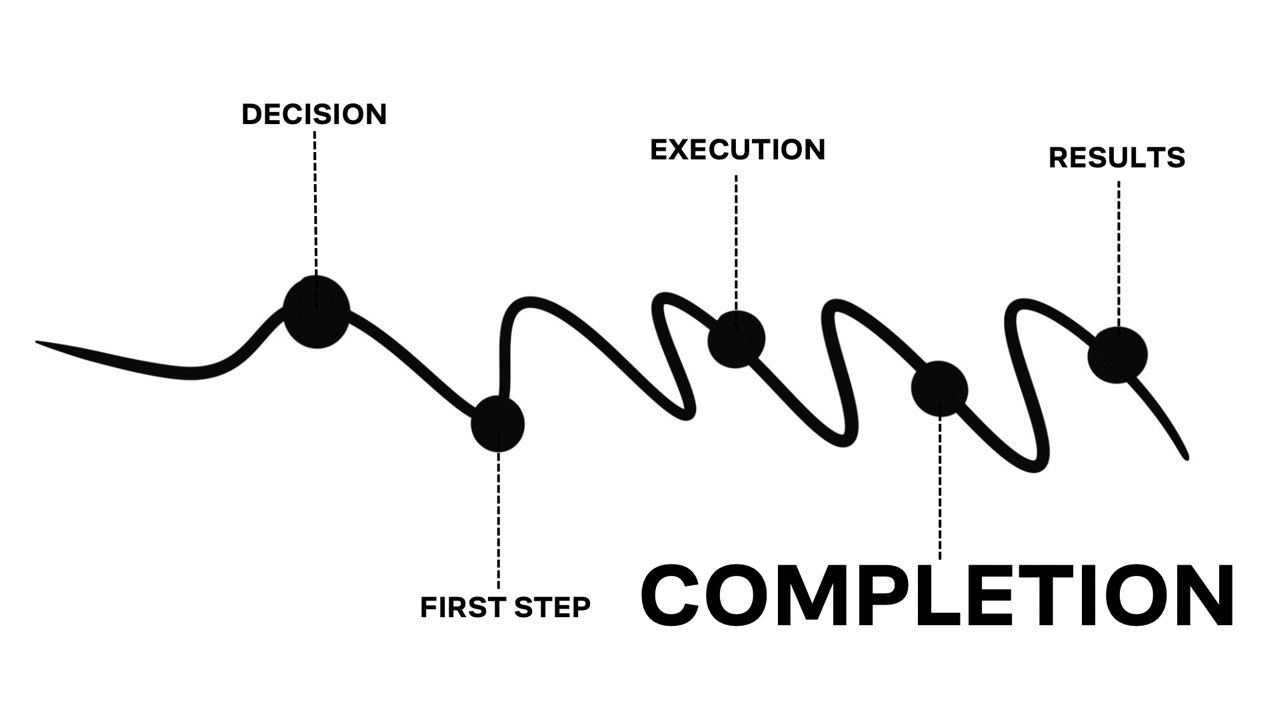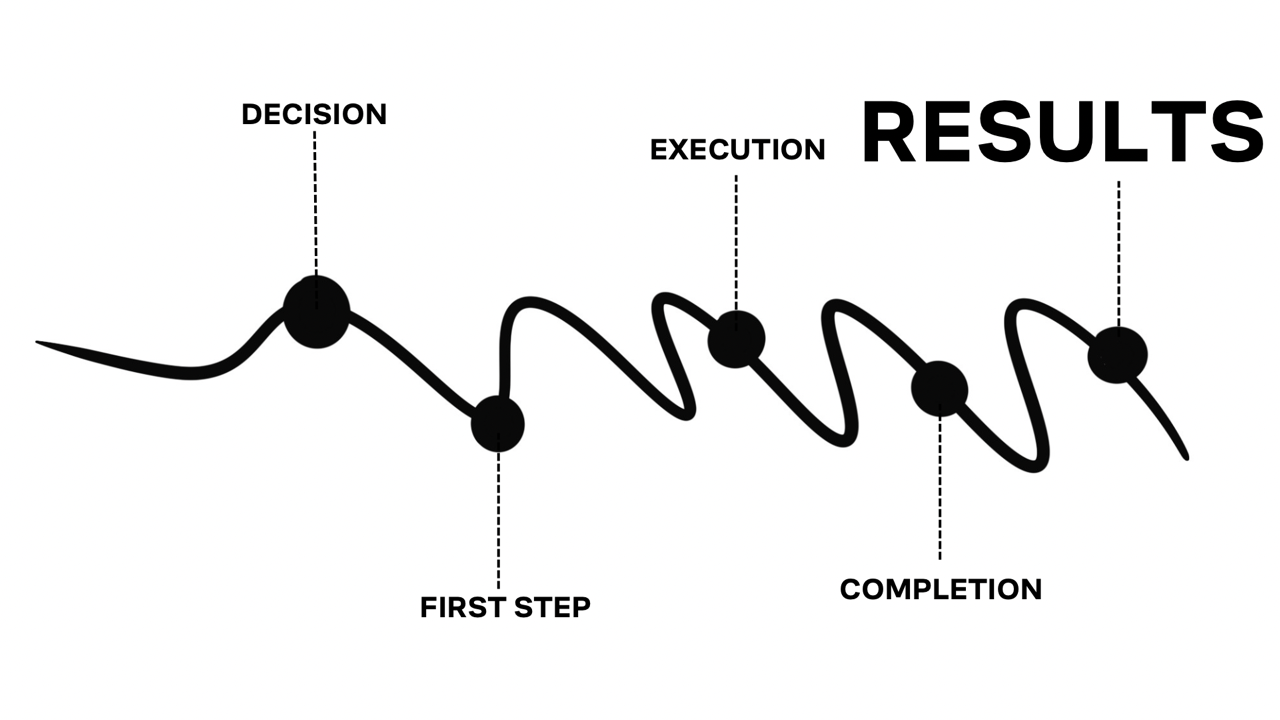The Beauty of Empathy: Jenna Nord's Journey from Makeup to Mindfulness
MEET JENNA NORD
The Online Makeup Academy graduate, who reveals the delicate art of navigating the personal spaces of clients and the transformative power of her craft
MEET JENNA NORD
The Online Makeup Academy Graduate
Welcome to a candid conversation with Jenna Nord @Embers.In.The.Dark a promising student at the Online Makeup Academy, who is currently working towards her Elite Career Path Program certificates.
Jenna’s story is not just about the career path of a makeup artist; it’s about overcoming fears, embracing growth, and the pivotal moments that chart the course from dreams to reality.
Join us as we explore Jenna’s inspiring journey from the Online Makeup Academy to the bustling sets of TV and film.
Jenna Nord’s narrative is a powerful reminder that the path to success is often paved with courage, self-belief, and the willingness to step out of one’s comfort zone.
Her experiences underscore the value of a solid educational foundation, like the one provided by the Online Makeup Academy, which has been instrumental in her development as a makeup artist.
As Jenna continues to make strides in her career, her story serves as an inspiration to all aspiring artists who dare to dream big and work tirelessly towards their goals.
Jenna is skillfully blending her professional makeup artistry with a deep understanding of psychology.
She shares her insights on how psychological principles not only empower her to conquer personal fears but also enable her to create a sanctuary for her clients.
As they confide in her, Jenna’s expertise shines, demonstrating that makeup artistry isn’t just about aesthetics—it’s about fostering trust and comfort in the most intimate of settings.
Join us as Jenna reveals the delicate art of navigating the personal spaces of artists and models, and how she uses the transformative power of her craft.
OMA: Jenna, can you share your journey from the Online Makeup Academy to the TV and film industry? What were the pivotal moments?
Jenna: I'd say the primary pivotal moment was when I decided to have courage and to go for it. For me, the biggest roadblocks in working professionally were fear-based i.e. "What if I'm not good enough? What if the work environment is hostile or overwhelming? Will I look stupid as the 'Rookie' on set??" on and on.
In hindsight, I ponder on the quote by Marianne Williamson. "Our deepest fear is that we are powerful beyond measure". For a long time I felt like it would be prideful to accept the compliments, on my work, that others were sharing. Then one day I was talking to a psychologist and he urged me to 'be brave'. It hadn't occurred to me that part of being brave is accepting the praise that is offered to me. To trust that I had practiced enough times and worked on my own long enough that it would be safe to venture forth into the professional arena. like Bob, from What About Bob, trying to 'baby step' onto the elevator, I decided to be brave and offer my help to a fellow makeup artist friend who is also working on the same film I am now working on.
My plan for showing up was to leave my ego at the door. This is the director's project. Not mine. I am here to serve and enrich. Not boast or "outshine" anyone. I chose to make myself a grounding and calm presence, in the room. I decided that my primary goal, aside from doing quality makeup, was to create a relaxing and rejuvenating experience for any actor that sat in my chair. Even if it was only for a 30 second touch up. And BOY did that work! The entire room noticed. Throughout the course of the night and during the days that followed nearly everyone on set reached out to me and commented on the atmosphere that I had created for my makeup chair. They responded to my centered, calm demeanor. Not my 'fancy' makeup skills. Although, those helped, too!
OMA: What inspired you to pursue a career in makeup, and how has your education at the Online Makeup Academy contributed to your success?
Jenna: When I was 10 years old I attended a neighborhood earthquake emergency simulation. Fire trucks at EMTs were scattered throughout the neighborhood for demonstration purposes. A makeup special effects team was there, making actors look like they had various disaster related injuries. i.e. cuts, broken bones, scrapes, burns, etc. Each actor was assigned to an EMT so that said EMT could demonstrate how to treat their 'wound'.
I was immediately drawn to the makeup artists. I remember my little 10-year-old body being completely overcome with the need and desire to learn what they were doing!! One of the women working there noticed my interest and sat down with me. She taught me how to make a simple compound fracture and a road burn scrape. Waves of little girl passion swept through me as I felt the makeup in my hands and saw the power I could have with a few SFX products and the right knowhow! I knew, deep down in my soul, that someday I was going to do THIS for my job.
Over the course of the next 20 years I poured over movies. I soaked up every SFX YouTube video I could get my hands on (not very many in the early 2000s). I practiced with every kind of goo and paste I could find. Halloween was my JAM!! Still is! The cumulative effect of practicing, over many years, was definitely beneficial. However the online makeup arena is often scattered, fragmented and random in its feed of information. I felt quite cast about in the riptides of "do this or do that" makeup advice that I was consuming. I knew that if I was going to work in any professional capacity I needed more formal, curated guidance. I also wanted a mentor to critique my work. YouTube's 'tips and tricks' just weren't cutting it anymore.
I found Online Makeup Academy's foundational makeup techniques to be exceedingly helpful. Understanding the mechanics of why makeup works on different face shapes, skin types, eye shapes, etc. was leaps and bounds more helpful than trying to mimic Jane Doe's makeup, on YouTube, when her face and eye shape were completely different from my own or whomever I was working on, at the time. Gaining a better understanding of blending one color into another. Cleaning my brushes properly. Preparing skin for makeup before just slapping something on.
These were all pivotal skills in making my makeup last and look more polished and professional. I also found the aforementioned hugely helpful in the department of answering questions. I had no idea how much of being a makeup artist is patiently listening to questions and guiding clients to the right products and techniques, for their situation. THANK YOU, OMA!! You really saved my fanny, there! It's because of your program that I know the answers to most of the questions I'm asked.
OMA: Working in TV and film must be quite dynamic. Could you describe a typical day on set for you?
Jenna: It had similar vibes to attending a Comic Con. A big room full of super creative and talented individuals. There was also an air of respect for the craft, as everyone buzzed about; practicing lines, prepping lighting, taping marks, etc. It felt intimidating, at first, to ask questions, make suggestions and work as part of the team. After a few minutes of positive and professional responses, to my questions, from those I spoke to, I found that we all, collectively assumed that, within reason, we have a free pass to comment, ask questions and collaborate within the scope of our given tasks. Once the ice was broken, it became easier and easier to flow with everyone's creative energy and intuit where I needed to be, what I needed to do, and what was expected of me.
OMA: What are some of the most important lessons you've learned while
working in the industry?
Jenna:
A. People love makeup artists and the idea of getting all "fancied" up. Don't be afraid. 89% of the time, your clients will be thrilled to see you.
B. Get yourself out there. You never know who you're going to meet. You may just stumble on some amazing opportunities if you make yourself known to the world.
C. Your clients are going to open up to you. Doing someone's makeup can be a very intimate experience for them, you or both. Take some time to study empathy, good communication, psychology, the trauma cycle, burnout, and the effects of domestic abuse/neglect. You are going to hear a lot of sad stories. Educate yourself so you can be a safe and healing person to talk to. Validate your client's words and feelings. Part of the intimate, nurturing act of doing someone's makeup could be the last step in a trauma cycle they're moving through. Help them leave your chair feeling safe, bolstered up and seen.
D. You will likely have clients who are Neurodivergent and/or have sensory issues. Have an open discussion with them about their particular needs.
Examples:
ADHD: "Do you need to get up and walk around/fidget throughout the makeup application process? Is it difficult for you to sit still for long periods of time?"
Autism: "Are there any parts of your face you don't like to be
touched? How can we work around that so you can feel calm when I apply makeup there?"; "What are some of your special interests? Would you mind telling me about them?"
Sensory Issues: "This setting spray can be rather jarring. May I spray it on your face, or would you prefer I dab it on?"; "Up next we're doing a tight line. *explain what that is* It will feel like *describe potential sensations*. Would you like me to do it quickly or break it up so you can better tolerate the brush on your eye?"
OMA: How do you stay updated with the latest trends and techniques in makeup artistry?
Jenna: I have made a point to study and practice era-accurate makeup from the 1920's to present day. Decade by decade. Today's makeup culture is so varied, with a LOT of vintage looks melding into modern trends/styles. I find that having a good understanding of the history of makeup helps a great deal in being flexible with the constant shift in makeup trends.
On social media I follow makeup influencers of all ages and ethnicities. I also read the comments of their audience. This gives me a live feed of makeup looks that people enjoy. Following and practicing on a wide variety of ethnicities and ages also helps me be aware of cultural makeup preferences and techniques. This helps me avoid doing the "wrong" kind of makeup on someone who has strong cultural preferences or insecurities. It also helps me to not do makeup that is too "modern" on an elderly client who may feel intimidated by newer trends or products.
OMA: Could you share a particularly memorable experience from your work in the industry?
Jenna: I was once working on a beautiful model who looked like Audrey Hepburn. So very lovely! As we visited with each other she seemed to have the soul of a sweet little Forest Sprite. Alight with passion, playfulness and curiosity. A truly beautiful creature to behold. Throughout her makeup application I made comments on her lovely eyes, healthy skin, curly hair and delightful personality. Several times she expressed that she grew up in a world that constantly cut her down. I came to realize that she didn't know her own worth or beauty. She had always been treated as if she was less than worthy of kindness. As I continued to treat her with kindness and empathy she choked up several times. With tears shining in her eyes and shaking hands she would tell me that no one had ever told her she was beautiful like that. I would pause the makeup application and allow her to process her emotions. Three separate times she asked if I would please give her a hug. With each hug, she would weep and ask if I really meant what I said. I meant it. By the time I was through doing her makeup I felt profoundly grateful that I had the privilege to care for such a sweet soul.
OMA: What advice would you give to aspiring makeup artists who want to work in TV and film?
Jenna: Prepare a robust portfolio. People are going to ask to see it ALL THE TIME. Don't present a lackluster body of work. Practice and showcase all kinds of different makeup looks. Offer to help other Creatives in your town (if there are any). Check your ego and shine through your actions. Don't be boastful. Be an AMAZING help to those around you. They'll notice. Divas don't get callbacks or referrals for more work.
Create A LOT of your own content. Take photos. Make videos. Edit your videos. Play with lighting and shadows. Practice doing makeup for your camera. Learn what works and what doesn't. Put your good stuff online and ask for critique. Pay attention to what doesn't get views, what gets negative feedback and what feels like it totally flopped. Practice fixing your makeup, photos and videos over and OVER. Don't get attached to the first draft of what you do. Film and TV are about doing things over and over until it is done to "perfection". Be flexible.
OMA: Jenna, how do you approach creating a character's look, and what's your process for collaborating with directors and actors?
Jenna: Questions I ask:
What do you want to emote with this look?
How long does it need to last? ( some makeup breaks down very quickly, so I would use different supplies and techniques for a 5 minute look than I would use for a 5 hour look)
Do you have a script for this scene?
What is the character's personality?
To the model: Can you tolerate prosthetics, fake blood, latex, fake tears, etc? They make be uncomfortable to wear and/or remove.
To the director: Please check in with me, often. Let me know, periodically, if you're happy with how the character development is going. What needs to be added or altered?
During the application process, to the model: "How are you holding up? Are you comfortable? How does that feel? Can you move, freely, with this look? Do you need a break? etc.
OMA: Lastly, what words of wisdom can you share for those looking to follow in your footsteps?
Jenna: Just make art! Build your own momentum. Don't wait for motivation to present itself. It won't. The world of makeup is deep and vast. There is nothing too "weird" or "crazy" to make work, in the right context. Be bold and try new things. If you fail, do it again and again until you make something new and better. Stay professional and don't worry about the judgments of others. Most of the time, they're not judging you. There is room for your art style, somewhere. If you can't find it, make it.




